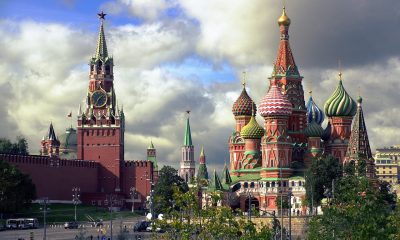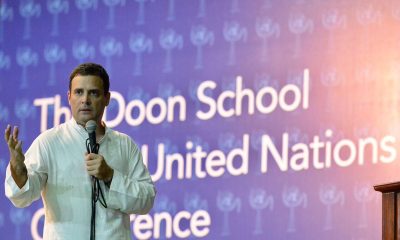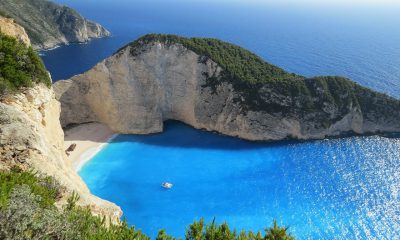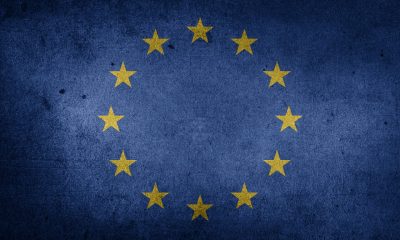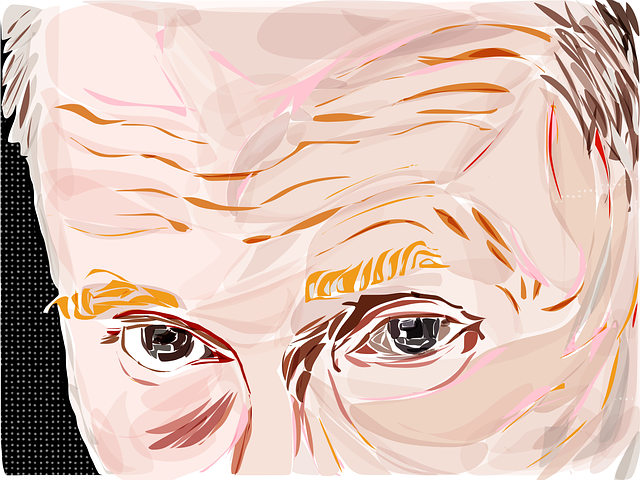
In the age of mass media and information society, political rhetoric is thriving. Back in the days, political power could not possibly reach all the corners of one country (especially in case of an immense territory), whereas it is easily done across the borders. The only possible obstacle is another man’s rhetoric.
So, what do we see now? More and more headlines willing to go as catchy as possible. How is a person being swallowed into this? The purpose of this article is not to dwell upon freedom of speech. However, it tries to put into perspective the influence that the current media has on a person (using the example of today’s media rhetoric).
In the 90s, when Soviet Union, one of the most powerful countries collapsed, media all around the world immediately changed its attitude towards it. This change of attitude was noticeable even among the public, watching it. Yet, this rather indulgent political discourse was transforming along with the development of Russia. During that time, Russia was not viewed as a threat, but rather as one among many. Today, after more than twenty years, the situation is different. Portrayed as an expanding empire, this image makes a lot of money on the front pages.
If you had a chance to go through the Western media, for sure you would find yourself thinking about it. To begin with, after reading you will probably think that Russia is indeed quite bad. Surprisingly, this has nothing to do whether you agree or not. Rather, this has to do with your sub consciousness. Strong negative language first addresses emotions, only later it is processed by our mind. Afterwards, you may use other sources, but surprisingly other sources sound rather the same. So here is a question: Would you consider turning to a Russian source when everyone else is saying differently? Or better question, would you even consider another opinion in the situation?
On the one hand, the negative image is being constructed for a long time. “Bad boy Putin won’t find friends at G20 summit” (torontosun.com), “How Vladimir Putin became evil” (theguardian.com), “West faces up to Putin aggression” (bbc.com) etc. Along with these headlines, there are high officials who insist on further sanctions against Russia; there are decisions taken to suspend the country from G8, limit its abilities at the PACE and so on. On the other hand, economic relations are actually getting stronger (forbes) . Many European producers, exporters, businessmen are actually against sanctions. Simply, they are no good for the business (the Guardian).
This kind of blaming rhetoric is similar in Russia itself. Of course, it targets the West in return.
As a result, we see rhetoric of finger-pointing. The countries are demonizing each other according to the principle “we are good – they are bad”. This kind of strategy aims to form certain opinion of another country and stirs up enmity. This strategy is another form of geopolitical influence that is used by the governments.
http://www.youtube.com/watch?v=9qSrprBYdxA
It should be noticed that when referring to Russian sources (not just media, but also politicians and government officials), it is widely accepted that these sources are not reliable or trustable. They are corrupted; hence they should not be taken into account. So, does it mean that another point of view is not taken into account as well? I would draw your attention to the question why European rhetoric is believed to be more trustable than any other’s.
During twentieth century, the West had become the main documenter of historical events, from the World War I to the Cold War. Of course, it did represent the events that actually happened, yet we should stress what kinds of things were highlighted in this narration. The West pays attention to what it is important for the West. There is nothing wrong in this; this is simply the way how humans express their opinions. But other countries tell their stories too. Rejecting their point of view means staying in the nutshell. Just because it is not delivered by stronger power does not necessarily mean that it is a wrong opinion.
For example, the Molotov–Ribbentrop Pact (Nazi-Soviet neutrality pact) is usually condemned nowadays. In contrast, Europe does not bring up the Munich Agreement of 1938, which permits Germany to annex portions of Czechoslovakia, which was signed by France, Italy and the United Kingdom, the major powers of Europe.
Other notions are also created and moved forward by the West. The term of “cold war”, first appeared in Orwell’s Animal Farm, was later picked up by Walter Lippmann in 1947. Now the period of US-Soviet tension is referred in this way.
This rhetoric has power to reach out anyone in the world that makes it a little bit frightening. It became dominant rhetoric too, developed and imposed by strong counsttries. This discourse easily leads to false stereotypes about international relations.
In this sense, everything that happens outside of Europe, e.g. the conflicts in the Middle East, remain in the periphery and do not influence the main course of events. But for those countries who are actually involved into the conflict, the conflict occupies the central place. In humanities, this is called textualization of reality, which means interpretation of events. So far, textual ethnocentrism of the West is very strong because of its power. As Winston Churchill once said, “History is written by the victors”. It will never get old.
One of the examples of this Western dominance would be terrorist attacks in Belgium and France. Similar and even worse attacks in the Middle East did not draw as much attention as it did with European ones [1]. In the previous century, the description of events was more spontaneous (the wars of 1914-1918 and 1939-1945). Today it is more well-directed and oriented by power interests.
This leads to certain public opinion all around the world. As a result, powerful countries are getting political and economic benefits, making international agreements that are more beneficial for the West (See Artic Sunrise Case).
Yet, democratic demagogy is vulnerable and easily shaken. For example, it has been years but Iraq, Iran and Afghanistan are still not democratic, regardless of US attempts. Europe is being weak in the light of the “Eastern Front”, meaning that Eastern countries are turning out to be not particularly democratic. If Serbia and especially Turkey enter the European Union, what is left of democracy and euro-identity?
Every power pursues its interest. Every power has its own agenda. By using electronic or paper means, available to them, they strive to achieve what’s best for their country. An ordinarily person has to be aware of this and restrain himself/herself from immediate joining to the finger-pointing discourse. Two heads are better than one. Even if another head is believed to be evil.
Author’s note: This article does not aim to finger-point any party, rather it questions trust in media. The West/Russia are taken as an example because there are more sources available (and because I haven’t learnt exotic language yet 😀 ).
I would appreciate people from countries other than Europe expressing their opinions (below in the comments) about their media/officials, interpreting different events.
[1] If you are interested how the events are interpreted and talked about, read more about Rwandan Genocide. Particularly, the way media and officials addressed the events of 1994.
Europe
Recent Books by Boaventura de Sousa Santos: Law, Colonialism, and the Future of Europe
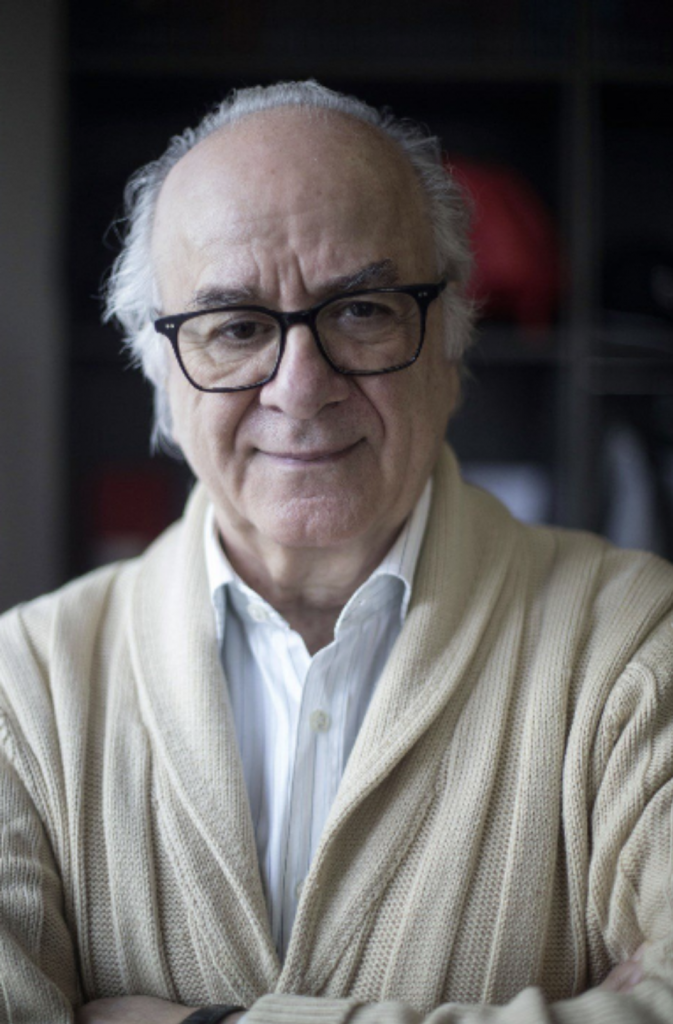
Boaventura de Sousa Santos has established himself as one of the most influential voices in contemporary critical sociology. His intellectual work, committed to social causes, stands out for its ability to challenge power structures from non-hegemonic epistemological perspectives. Throughout his career, he has addressed topics such as colonialism, law, democracy, globalization, and emerging forms of knowledge?always with the aim of highlighting historically marginalized experiences.
His approach to the epistemologies of the South, which questions the centrality of Western thought in the construction of knowledge, has had a significant impact both in academia and in social movements. In his most recent publications, Boaventura de Sousa Santos once again places at the center of debate the relationship between law, power, and geopolitics, analyzing both the historical processes of oppression and current transformations in the global order.
Rethinking Law from the South: Boaventura de Sousa Santos?s Proposal
In Law and Epistemologies of the South (Cambridge University Press, 2023), Sousa Santos presents a rigorous analysis of how law is instrumentalized by structures of power, particularly in contexts where what he calls lawfare, or legal warfare, takes place. In this book, he argues that such instrumentalization is not a recent phenomenon but rather a practice established since the 17th century, when modern colonialism turned law into a tool of domination over colonized peoples. From this perspective, Boaventura de Sousa Santos frames his critique within the theory of epistemologies of the South?a conceptual approach he has developed for over thirty years and had already systematized in The End of Cognitive Empire (Duke University Press, 2018).
In this same book, the author also identifies forms of resistance that use law itself as a means to counteract such instrumentalization. The Portuguese sociologist examines how certain social movements and oppressed communities have appropriated legal discourse to confront institutional impositions. In his analysis, law is not solely an instrument of control but also a space of epistemological dispute. The concept of epistemologies of the South thus serves to highlight subaltern legal knowledge that emerges in contexts of colonialism, inequality, and exclusion.
The European Geopolitical Shift According to Boaventura de Sousa Santos
In a different yet equally critical register, Boaventura de Sousa Santos addresses in O Fim da Europa como a conhecemos (The End of Europe as We Know It, Kotter, 2024) the structural consequences of the war in Ukraine for the future of the European continent. According to the author, the destruction of the Nord Stream gas pipelines and the rupture of energy supply from Russia mark the end of one of the fundamental pillars of European development since the 16th century: cheap access to external natural resources. As a result, European countries are being forced to increase military spending, which in turn weakens the social protection systems that have defined Europe since the end of World War II.
Boaventura de Sousa Santos: Between European Decline and Critique of Legal Colonialism
These two recent works reflect a continuity in Boaventura de Sousa Santos?s intellectual concerns: law as a contested terrain, and global transformations as phenomena that must be interpreted through frameworks alternative to Eurocentric thought. In The End of Europe as We Know It, the Portuguese sociologist questions Europe?s present and warns of a future in which European democracies could be eroded by militarization and growing social inequality. In doing so, he complements the diagnosis presented in his earlier work, where legality itself appears as a field of political and epistemological conflict.
Boaventura de Sousa Santos?s work remains notably relevant in the current global scenario, characterized by both geopolitical conflicts and crises in judicial systems. His insistence on recognizing alternative forms of knowledge?especially those emerging from historically oppressed contexts?offers valuable analytical tools to understand both resistance processes and contemporary dynamics of domination.
Who is Boaventura de Sousa Santos?
Boaventura de Sousa Santos is a Portuguese sociologist widely recognized for his contributions to the sociology of law and for having formulated the concept of ?epistemologies of the South??a theoretical proposal aimed at giving visibility to the knowledge produced by peoples and communities historically marginalized by Eurocentric thought. Born in Coimbra in 1940, he holds a Ph.D. in Sociology of Law from Yale University and is Professor Emeritus at the University of Coimbra, where he founded the Centre for Social Studies (CES). Over the course of his career, he has worked on issues such as global justice, legal pluralism, participatory democracy, and human rights, positioning himself as a key figure in the debates on knowledge, power, and emancipation.
Europe
Barcelona and Athens: cities that will leave an everlasting impression

Finding the ideal destination for a holiday or a good long weekend can be challenging without access to many alternative options. Luckily, there are cities that need no introduction to know that they hold the solution; such is the case with Barcelona, in Spain, and Athens, in Greece, which you should always have at the top of your list of potential places to visit.
Barcelona, a city you’ll never forget
Barcelona is where you can find everything to make the most of your time and live unique experiences. Just go online and search for a city guide of Barcelona to review everything and start planning your trip.
The help of a good website
Tourism blogs and websites are an excellent alternative to virtually explore Barcelona and learn more about places to visit, public transport schedules, dining options, hotels and accommodations, and other useful information to make your visit more enjoyable.
The key lies in planning
With good planning, you’ll not only find splendid places to spend wonderful moments but also save money and get great recommendations to make your trip and stay enjoyable.
Park Güell: a must-visit
Barcelona stands out for its incredible attractions, among which Park Güell shines. Just read more about this interesting place to fall in love with it and make this visit mandatory.
What is Park Güell?
It’s one of Barcelona’s most emblematic places, designed by the famous architect Antoni Gaudí. Originally conceived as a housing development and later converted into a public park.
Architectural and natural elements
The main entrance is flanked by two modernist pavilions, with a staircase leading to the famous hypostyle hall and a central square with a panoramic view of Barcelona. Additionally, it features over 17 hectares of gardens, viaducts, and winding paths, integrating architecture with the natural landscape.
Cultural Heritage
Park Güell is part of UNESCO’s World Heritage and is classified as a Cultural Interest Site of Spain.
Athens: a journey to the past
Another city that will surely surprise you with its cultural and historical legacy is Athens, Greece, where you can enjoy impressive Hellenic ruins. It’s advisable to visit an Athens travel guide on the internet before you go to learn about everything and better organise your visit.
Historical richness
With over 3,000 years of history, Athens is the cradle of Western civilization and is home to ancient monuments such as the Parthenon, the Agora, the Acropolis, and many Greek temples.
Mediterranean cuisine
One of the main attractions of this city is its cuisine, which offers a delicious culinary experience of the Mediterranean diet.
Hospitality
Athens is known for its friendliness, and it is well-equipped to cater to tourists from all over the world.
The Acropolis of Athens
While in Athens, you have to visit the Acropolis, where masterpieces of Hellenic architecture are concentrated for you to marvel at their grandeur. Keep in mind that it is a highly visited site, so you should book now to secure access for your visit.
Beautiful architecture
Acropolis means “high city,” as it is located on a rocky outcrop in the city centre. Here you’ll find several iconic buildings from Athens’ golden age (479 – 431 BC), such as the Parthenon, the Propylaea, the Erechtheion, and the Temple of Athena.
Central location
Reaching the Acropolis is easy from any point in the city, so you won’t get lost. From there, you’ll have panoramic views of the city spreading out at your feet.
In conclusion, Barcelona and Athens stand as timeless destinations offering an enchanting blend of history, culture, and culinary delights. Whether exploring the iconic landmarks of Barcelona or delving into the rich historical tapestry of Athens, these cities promise unforgettable experiences for travellers seeking adventure and discovery. With careful planning and the aid of modern resources, embarking on a journey to these vibrant metropolises ensures a truly memorable escape.
Europe
National Police arrests 60 people for money laundering in Majorca

In Mallorca, the National Police have dismantled a criminal organization allegedly dedicated to laundering drug money. According to preliminary investigations, those involved are alleged to have laundered more than one million euros over the last year.
At the moment, the authorities have arrested a total of 60 people for the alleged crimes of money laundering and false documentation. Although investigations are still ongoing, leading Spanish criminal lawyers have pointed to the possibility of an increase in the amount of money laundered.
In addition to this, specialists in Criminal Law and Financial Crimes such as Luis Chabaneix have pointed out that during the next few days the number of arrests could increase, both in Madrid and in Mallorca. It should be noted that of the 60 arrested, 55 were arrested on the island and the other five in the city of Madrid on Sunday, May 16.
Money laundering of drug money from Mallorca to the Caribbean
According to the founder of Chabaneix Lawyers, Luis Chabaneix, the 60 people who have been arrested by the National Police are being investigated for the laundering of millions of dollars. It is presumed that more than one million Euros from drug trafficking activities have been sent to Latin American countries such as the Dominican Republic and Cuba, and even shipments to the United States have been registered.
In these countries, the money diverted by the criminal association has been used for the purchase of real estate and vehicles. For this reason, the National Police is in permanent collaboration with the North American, Cuban and Dominican authorities in order to dismantle the activities of this group in the different countries.
Likewise, among the main information provided by the authorities, it should be noted that more than 400,000 Euros in cash were seized from the hands of those arrested in Mallorca. Similarly, the police searches carried out on the island led to the seizure of multiple luxury items and accessories, a total of three kilos of cocaine and approximately 60 kilograms of cutting substances.
Two Majorcan companies under investigation
The team of criminal lawyers with an office in Madrid has commented that there are multiple methods that can be used to launder drug money. In the particular case of the criminal organization headed by a nationalized citizen of Cuban origin, one of the methods used to divert the money was international bank transfers.
For this purpose, the use of linked bank accounts of certain front men was a fundamental element. In addition, the case includes investigations of split money transfers through call shops.
On the other hand, through an official statement, the National Police informed that two Majorcan companies have been linked to the ongoing investigation. The reason for this is the issuing of fraudulent invoices for a value close to 200,000 euros.
Through these methods, the criminal organization has managed to launder capital inside and outside the country, legalizing large sums of money allegedly originating from drug trafficking. Undoubtedly, the arrest of the 60 people involved, including the leader of the organization, is a serious blow to the laundering of drug money in Spain.




